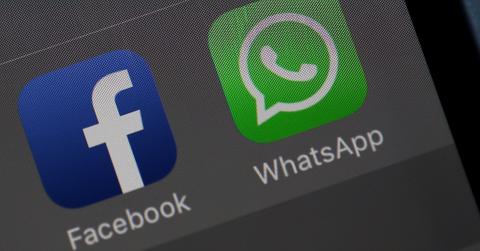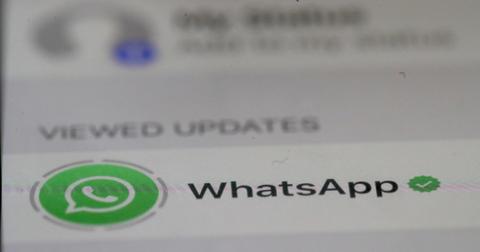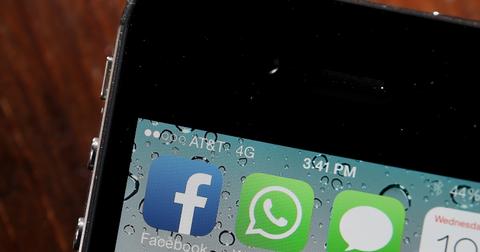WhatsApp No Longer "Drug Dealer" App of Choice After Facebook Data Announcement
Jan. 7 2021, Published 8:31 p.m. ET

There's a saying when it comes to the world of software: If you're using a product or service that's free then you're what's being sold. And this has proven to be the case with social media networks and free-to-use apps. The big bad wolf of the data-sharing world, however, has to be Facebook. With 2.7 billion users worldwide, there's a lot of data sharing going on, and now that the brand has implemented the same rules with WhatsApp, users are contemplating jumping ship from the service.
What kind of data from WhatsApp users will Facebook be sharing?
WhatsApp was once hailed as one of the most secure messaging services out there as it featured end-to-end encryption. The simple to use and reliable platform helped to "bridge the gap" between Android and iPhone users, would send messages over WiFi connections, allowed for low-data-usage voice calls and group video calls, and created a way for easy sharing of high quality videos and pictures.
WhatsApp's user base is a global phenomenon and helps to keep people in communication across a wide variety of mobile devices, especially those in areas where high speed mobile data isn't in high supply.
There was also a long-running joke that it was the "drug dealer" messaging app of choice, as communications through it were rock-solid.
But ever since Facebook purchased the application, users of the app worried that it was only a matter of time before Zuckerberg and co. applied their same data sharing strategies to it and sure enough, they did. Facebook announced that on Feb. 8, 2021, WhatsApp users will have no choice but to accept new privacy regulations or their account statuses will be in jeopardy. Some users have reported that they've already received the update, specifically in India, as of Jan. 6.
XDA-Developers first began reporting on the update, as per 9 to 5 Mac: "WhatsApp users are receiving an in-app notice today regarding the service’s new terms and privacy policy. The notice ... talks about three key updates that affect how WhatsApp processes your data, how businesses can use Facebook hosted services to store and manage their WhatsApp chats, and how WhatsApp will soon partner with Facebook to offer deeper integrations across all of the latter’s products."

The implications in the updated user agreement could have serious impacts on the WhatsApp user experience, namely the addition of in-message advertisements, "suggestions" based on your conversations, links, and offers.
What's interesting is that WhatsApp seems to have reneged on their previous vows that the end-user experience for WhatsApp messengers would remain relatively unchanged. A 2014 blog post that was published shortly after Facebook purchased the app read, "There has also been a lot of inaccurate and careless information circulating about what our future partnership would mean for WhatsApp users’ data and privacy. I’d like to set the record straight."

The post continued, "Respect for your privacy is coded into our DNA, and we built WhatsApp around the goal of knowing as little about you as possible. If partnering with Facebook meant that we had to change our values, we wouldn’t have done it. Instead, we are forming a partnership that would allow us to continue operating independently and autonomously. Our fundamental values and beliefs will not change. Our principles will not change."
Then in 2016, WhatsApp began to share data with Facebook, but allowed users to opt out of this program. Now, it's a condition of use.
Will Signal's app stock go up, along with other WhatsApp alternatives available to mobile users?
If you're looking for other mobile messaging applications, available to use on both iOS and Android that have similar functionality to WhatsApp but don't share your user data and have stricter privacy protocols, then you may want to check out Signal and Telegram.
EU WhatsApp users won't have to worry about the new data sharing and app privacy protocols, as the region has more strict laws when it comes to mobile user data.
Are you a WhatsApp user who's concerned with the new data sharing rules?